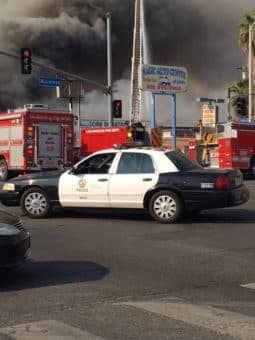Notes to the Pastor:
Practical Advice on Handling Emergencies
by Roger Mason PhD
Introduction
This article is about pastors dealing with emergencies. It is not intended for veteran pastors and ministers with years of experience. My background is training first responders. During emergencies, pastors sometimes function as a special type of first responder. They care for the spiritual and emotional needs of the persons involved.
There is one problem with being a first responder. There is no guarantee you will have time to gain experience before you are called to an emergency. The biggest crisis you ever face may come in your first week on the job. This article is designed to provide new pastors and ministers practical information about responding to emergencies.
 Understanding Emergencies
Understanding Emergencies
What are emergencies? There are unexpected situations with serious impacts.
Emergencies can be evaluated by type, location, and persons impacted. Examples of emergencies can include accidents, natural disasters, crimes, and character failures. They can be on your campus, in your neighborhood, at the home of a church member, or in your region.
The persons impacted can be a single family member, a family, your entire church body, or your community. Emergencies rarely match initial expectations. They often involve more people, take longer to resolve, and include issues you had not anticipated.
Typical pastoring emergency calls can involve responding to an emergency room for an injured church member or comforting victims of a natural disaster. There may be opportunities to provide comfort or counseling to community members who do not attend your church,
One of the most challenging types of emergencies are crimes or character emergencies involving members of your church. An example would be the arrest of a staff member or an elder. These types of emergencies may result in secondary problems like dealing with the media.
What You Need to Know
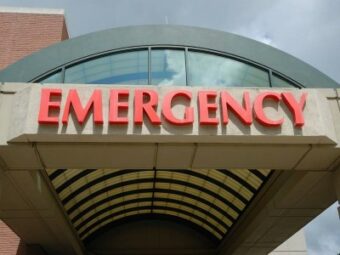
Your knowledge should be divided into three parts: your church operations/plans, your church infrastructure, and the emergency operations system in your area. Your church operations and procedures are how your church functions. Emergency or contingency plans are particularly important. You should be familiar with your church’s regular and extracurricular calendar. Church infrastructure information is the basic understanding of how your physical plant operates and who can fix it. Local emergency information includes things like where your hospitals are located, how social services work, and contacts with associated organizations like the Red Cross.
Dealing with the Authorities
You may be called to an emergency where the police are involved. The nature of the incident may require law enforcement to investigate. Be patient. Your initial access to the persons involved may be restricted. Ask for the person in charge at the scene. Explain who you are and that you are there to assist the family. Offer to help the officers in any way that you can.
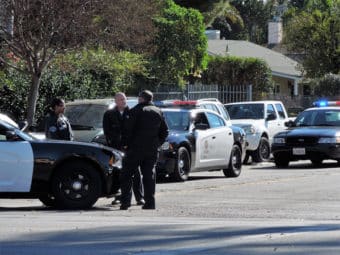
I can recall the pain of being at the scene of a family Fourth of July party where a toddler had fallen in a jacuzzi and drowned. I had to stay detached to avoid the overwhelming heartache that can prevent you from doing your job. You may be there to minister to the family, but there are others at the scene who also need the love of the Lord.
As the incident progresses, the police will be thankful for the help you can provide the victims. Besides comfort, you will be able to provide information they need and practical assistance like caring for children. The first responders can provide you useful information like which hospitals the victims were taken to or when a family can return to their home.
Preparing Your “Go Bag”
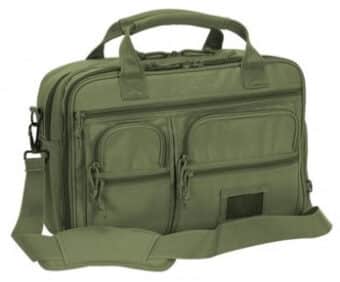
Note: My younger friends and children will tell you many of these items can be handled by their smartphone. The only problem is if the phone is misplaced or the battery goes dead you lose everything. A good rule of thumb is always having a backup and confine your phone use to communications as much as possible.
The following list contains items you should have ready to go.
- Go Bag: Something the size of a laptop case or briefcase. It should have a baggage tag with your name and contact information.
- Information: You should have a printed list of important phone numbers and contact information to back up anything on your phone.
- Cash: You should have about $100 in various denominations and ten dollars in change for parking meters. (Do not assume “they will take a card” or an ATM will be readily available.)
- Blessings: The people you are caring for may need blessings like food and refreshments. Carry a few gift cards for fast food, coffee locations (Starbucks), and a local coffee shop or diner.
- Business Cards: You should have business cards for yourself and the church.
- Tracts/Pocket New Testament
- Large Print Compact Bible: This provides you a copy of the scriptures at all time. The large print may be useful for someone else or low light conditions. (I use a compact Bible that is 5” by 7”).
- Flashlight: Have a small tactical flashlight. Relying on your phone for light will quickly drain the battery.
- Charging Cord and External Battery Backup: Make sure you have a charging cord for your phone and carry an external battery. These typically hold 2-3 charges. This can be a blessing if someone you are caring for needs a phone charged.
- Writing Pad and Spare Pens
- Meds: 24 hours of the critical medications you take each day. You may not be able to run home to take your pills.
- Spare Reading Glasses
- Comfort Items: A bag with aspirin, breath mints, gum, and a roll of Life Savers. The Gum and Life Savers may be useful to comfort children.
- Small First Aid Kit: These are available at your local pharmacy. They are big enough to hold an assortment of Band-Aids, individual alcohol wipes, and eye drops.
- Granola Bars
Handling Communications
One of the most difficulty situations for a pastor is handling communications. This includes communicating to the body and sometimes dealing with the media.
Who Needs to Know?
Who should be told depends on the nature of the incident. A church family is injured in a serious traffic accident. This should be shared with the body as a matter of prayer. People close to the victims can begin helping and ministering. A wife has been checked in rehab by her husband and there is an investigation of possible child neglect. This is an emergency where the details will not be public.
Of course, the victims must have first say in what is shared. Their concerns will come first. Details of most emergencies can be shared among the pastoral staff and the church leadership. If it is tragedy that is public knowledge (ex: sudden natural death, accidents, a house fire) it should be communicated to the church body.
Dealing with the Media

Here are several essential tips for speaking to the press.
“No Comment” will not make the press go away.
They will continue to contact you. If you do not speak to the press, they will determine what will be reported about your story. Make sure you are prepared when you do it.
Do not be overconfident
People often make a mistake assuming they can organize their thoughts and sort things out while speaking in public. This almost always leads to disaster. Overconfidence in your ability to publicly control and craft your message is misplaced.
Have your message ready before you speak
Know what you are going to say and stick to it. It is wise to have someone else review the statement. You may need to share this with your leadership board.
Limit the persons speaking to the public.
Have one person that represents your church to the press.
Initial Incident Dynamics
Emergencies rarely match initial expectations. They often involve more people, take longer to resolve, and include issues you had not anticipated. Scientists studying crises and decision making have come to the following conclusions. Once an emergency occurs you will:
- Be able to handle less than you thought
- Not be able to respond as quickly as you planned
- Things will take longer than you assumed
- And there will be things you had not anticipated.
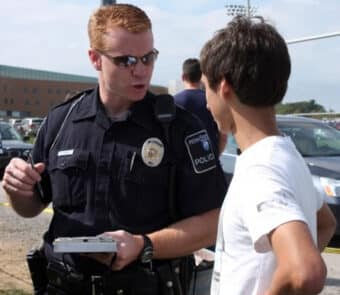
One of the questions about emergencies new police officers ask is how do you know what you should do first? This is simple. An excellent way to get started is taking down everyone’s contact information. While you are doing that you can evaluate the situation and develop a course of action. For pastors, a good way to start is asking some basic questions. Your questions should help you understand what has happened, who is involved, and gives you a moment to formulate a ministry plan.
Evaluating the Situation
Your experience as the church pastor will give you a tremendous advantage. Here are some practical things to consider.
- How Many People Are Involved?
You may need assistance if there are several families involved. This is where you call upon your church body for backup (Associate Pastor, youth pastor, elders, other families, etc.)
- Evaluating Propriety Issues
Do you need your wife or another Godly woman to assist the persons you are helping? Do you need someone that can temporarily care for small children?
- Practical Issues
Are there practical issues that someone else can handle for you? (Ex: Is this car drivable? Can the family remain in their house overnight? etc.) These problems can be handed off to trustworthy members who can handle practical details while you focus on ministering to the victims. The person assigned to the practical problems can draw up a list of short-term needs that can be filled by the church body (Ex: Someone to care for pets, a shelter for family members, someone to handle driving responsibilities for children, etc.) - Preparing for Handoffs
Some immediate emergencies will be resolved in a few hours. You may have a situation where you feel someone needs to be present for the first twenty-four hours. Be ready to have someone that can step in to relieve you.
Summary
Since God created man, there have been special people called to care for the hurting and broken-hearted. Your study of the scriptures provides the basis for spiritual care. You should also consider the practical aspects of responding to emergencies. This preparation can make your job easier and your ministry more practical.
Questions?
Contact
Roger Mason, PhD
LECMgt
340 Rosewood Ave. Suite J
Camarillo, CA 93010
818 693 1668
Infor@LECMgt.com
Roger@lecmgt.com

